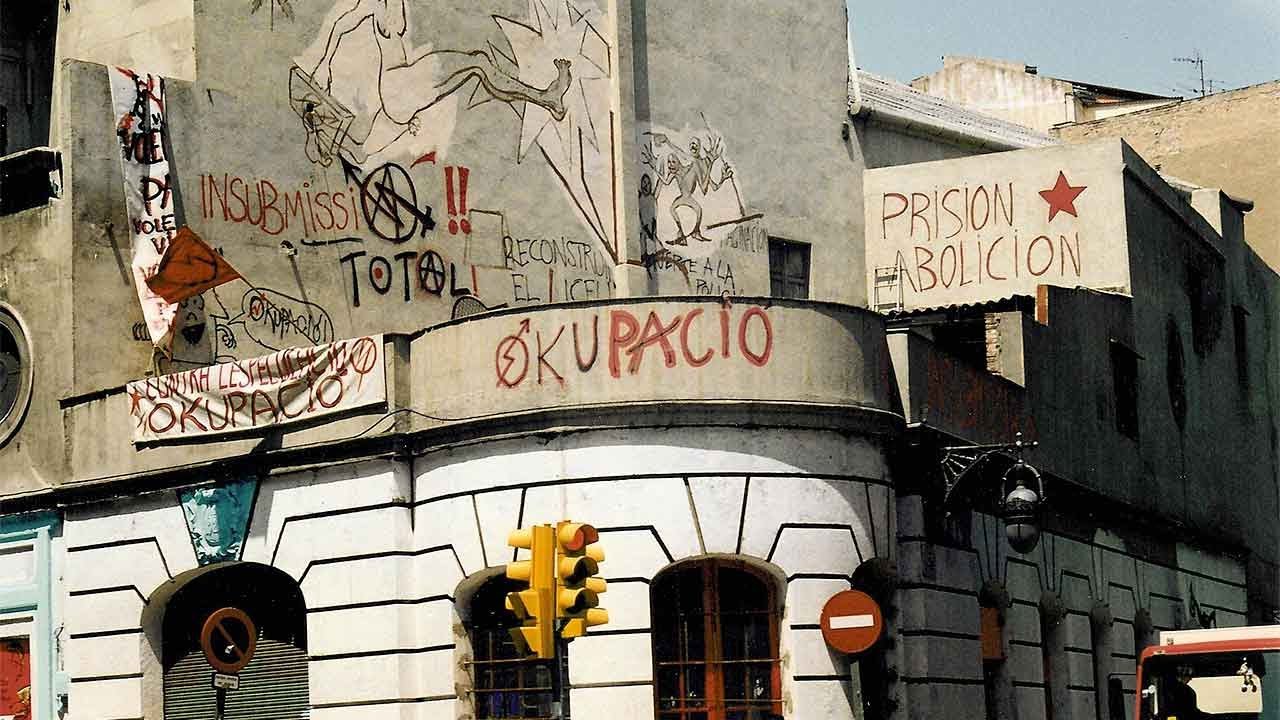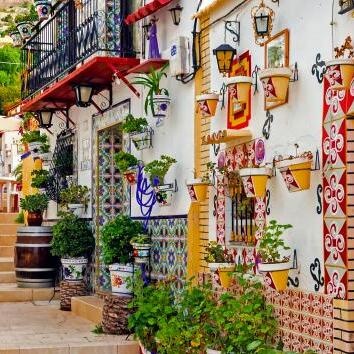
Okupas in Spain: What You Need to Know
Spain is a country renowned for its rich history, beautiful landscapes, and vibrant culture. However, it also faces a unique and controversial issue known as "okupas." This term refers to individuals who occupy vacant properties illegally. The phenomenon has sparked significant debate among homeowners, policymakers, and the public.
One of the biggest concerns for property owners in Spain, particularly in tourist-heavy regions like Alicante, is the risk of okupas, or unauthorized occupants. Dealing with the threat of unauthorized persons can be particularly difficult, especially for property owners who are not always present. This is where property management in Alicante becomes invaluable, offering professional services to ensure the security and proper maintenance of your property, even in your absence.
Property management services not only help protect your property from okupas but also provide comprehensive care. Our services include not only inspection of the property and its condition but also cleaning and maintenance, guest screening, listing creation, professional photography, and re-stocking essentials. Therefore, we will be able to take care of your property!
What Are Okupas?
"Okupas" is derived from the Spanish verb "ocupar," meaning "to occupy." It describes individuals or groups who enter and inhabit vacant or abandoned properties without the owner's permission. This practice can be traced back to the 1980s when squatting became a form of protest against housing shortages and economic inequality. Over time, the movement evolved, and okupas now occupy a diverse range of properties, from dilapidated buildings to luxury homes left unoccupied for extended periods.
Under Spanish law, squatting isn't explicitly allowed; however, certain circumstances can give squatters some legal standing. For example, if a property is left unsecured and unattended, it becomes susceptible to being occupied. Once squatters are inside, they may assert a right to housing, making the eviction process more difficult for property owners.
Usually, in such situations, the owners call the police, but it is not always the best decision to evict the occupants with the help of the police. On the contrary, if you inform the police, and the occupiers have been living there for a long time, then you can evict the occupiers only with the help of the courts, which in their time can drag on for years, until they make a decision and proceed to eviction from the apartments. And then the squatters can live peacefully in these premises while the trial is being conducted. However, there are special services that can help.
Why Do People Become Okupas?
Several factors contribute to the rise of okupas in Spain:
- Housing Crisis: Spain has faced significant housing challenges, including a shortage of affordable housing. Many people, especially young adults and low-income families, struggle to find suitable and affordable accommodation. According to the Spanish Statistical Office (INE), the average rent in Spain has increased by 50% in the past decade, making it increasingly difficult for many to afford housing.
- Economic Inequality: High unemployment rates and economic disparities have left many individuals financially vulnerable, pushing them to seek alternative housing solutions. As of 2023, Spain's unemployment rate stands at around 12.5%, one of the highest in the European Union.
- Political Protest: Some okupas are motivated by political beliefs, using squatting as a form of protest against perceived social injustices, such as property speculation and the commodification of housing. In Barcelona, for example, activists have occupied buildings to protest against gentrification and rising living costs.
- Legal Loopholes: Spain's legal system has certain loopholes that can make it difficult for property owners to evict okupas quickly, leading to prolonged occupations. A report by the Spanish real estate portal Idealista found that it can take up to 18 months to evict okupas through the legal system.
Impact on Homeowners
The presence of okupas in a property can have severe and far-reaching consequences for homeowners. Financially, property owners often face substantial losses due to various factors. Damage to the property is common, as many okupas may not maintain the premises properly, leading to repair costs that can range from €5,000 to €10,000. In addition to the physical damage, homeowners often have to bear significant legal fees.
The impact of okupas on homeowners is multifaceted, involving significant financial losses, emotional stress, and a decrease in property value. The presence of okupas creates a challenging situation for property owners, necessitating a comprehensive approach to address the issue effectively. Through policy reforms, community initiatives, and preventive measures, it is possible to mitigate these adverse effects and provide better protection for homeowners.
How to Protect Your Property from Occupation in Spain
If you own property in Spain, and squatters have entered your home, do not evict them on your own, because not only will it not solve the situation, but you may even end up in prison. Therefore, we recommend taking preventive measures that can help protect it from illegal occupation by squatters.
- Install an Alarm System: A robust alarm system can serve as a strong deterrent against potential intruders. The presence of an alarm system can discourage okupas from attempting to break into your home.
- Service that will check your accommodation: A great solution would be to hire a company and people who will come and check your property from time to time because even if squatters live in the premises for more than 2 weeks and if they make any, even cosmic changes in the renovation, it will be very difficult to evict them legally.
- Opt for Short-Term Rentals: Properties that are rented out on a short-term basis are less likely to be targeted by okupas. Regular turnover of tenants reduces the chances of illegal occupation. Carefully vet potential tenants or use a reputable agency to manage the process. Agencies can handle tenant selection, move-ins, and evictions if necessary.
- Financial Verification: When renting out your property, request documentation such as bank statements or employment contracts to verify the financial stability of potential tenants. Ensuring that tenants have a stable income reduces the risk of them becoming okupas.
- Advance Rent Payments: Require tenants to pay rent in advance for a period of at least three months. In cities like Barcelona and Valencia, it is common practice to ask for six to twelve months' rent in advance for long-term leases. This practice can help secure your rental income and reduce the risk of non-payment.
- Regular Property Inspections: Hire a property management company to regularly inspect your property, especially if you are not in the country. A property manager can conduct scheduled visits, ensure the property is well-maintained, and pick up mail. This regular oversight can help detect and prevent illegal occupation early.
By implementing these strategies, you can significantly reduce the risk of your property being occupied by okupas. Proactive measures and regular oversight are key to protecting your investment and ensuring your property remains secure.
Steps to Take If Your Property Is Occupied
Discovering okupas in your property can be distressing. Here’s what to do:
- Contact the Police: Report the situation immediately. If the okupas entered recently, officers may remove them without a court order. Document everything thoroughly, including photographs or videos of any damage or signs of forced entry.
- Seek Legal Advice: A lawyer specializing in property law can guide you through the eviction process. They can also help you understand your rights and the specific legal procedures in your area.
- File a Legal Complaint: Submit a denuncia (formal complaint) to start legal proceedings. Ensure you provide all necessary documentation, including property ownership records and evidence of illegal entry.
- Engage a Property Recovery Specialist: In some cases, professional companies specialize in helping owners recover their properties. They can assist with both legal and practical aspects.
- Check Your Insurance Coverage: Review your home insurance policy to see if it covers damages or legal costs associated with squatting. This can help mitigate financial losses.
- Avoid Direct Confrontation: Engaging directly with okupas can escalate tensions and lead to legal complications. Always rely on legal channels and professionals to handle the situation.
Taking these steps promptly and methodically can increase your chances of a successful resolution.
The phenomenon of okupas in Spain is a complex issue rooted in social, economic, and legal factors. While the practice of squatting poses significant challenges for homeowners and the legal system, addressing the root causes through comprehensive policy reforms and community initiatives can help mitigate its impact. By understanding the underlying issues and exploring potential solutions, Spain can work towards a more balanced and fair approach to housing and property rights.








